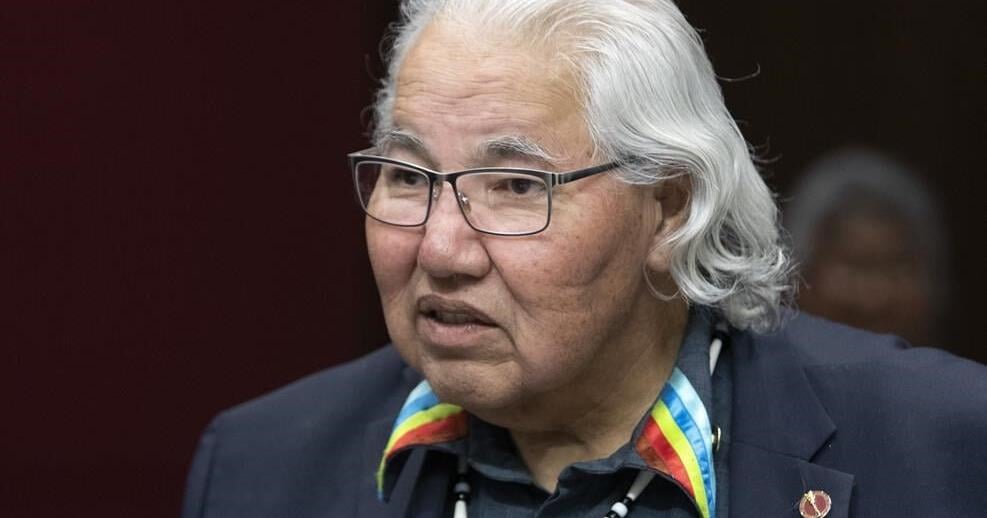WINNIPEG – A public memorial honouring former judge, senator and chair of the Truth and Reconciliation Commission into residential schools, Murray Sinclair, is set to take place in Winnipeg on Sunday.
The event, which is being organized by the federal and Manitoba governments, will be at Canada Life Centre, home of the NHL’s Winnipeg Jets.
Sinclair died Monday in a Winnipeg hospital at the age of 73.
A teepee and a sacred fire were set up outside the Manitoba legislature for people to pay their respects hours after news of his death became public. The province has said it will remain open to the public until Sinclair’s funeral.
Sinclair’s family continues to invite people to visit the sacred fire and offer tobacco.
The family thanked the public for sharing words of love and support as tributes poured in this week.
“The significance of Mazina Giizhik’s (the One Who Speaks of Pictures in the Sky) impact and reach cannot be overstated,” the family said in a statement on Tuesday, noting Sinclair’s traditional Anishinaabe name.
“He touched many lives and impacted thousands of people.”
They encourage the public to celebrate his life and journey home.
A visitation for extended family, friends and community is also scheduled to take place Wednesday morning.
Leaders from across Canada shared their memories of Sinclair.
Premier Wab Kinew called Sinclair one of the key architects of the era of reconciliation.
Prime Minister Justin Trudeau said Sinclair was a teacher, a guide and a friend who helped the country navigate tough realities.
Sinclair was the first Indigenous judge in Manitoba — the second in Canada.
He served as co-chair of the Aboriginal Justice Inquiry of Manitoba to examine whether the justice system was failing Indigenous people after the murder of Helen Betty Osborne and the police shooting death of First Nations leader J.J. Harper.
In leading the Truth and Reconciliation Commission, he participated in hundreds of hearings across Canada and heard testimony from thousands of residential school survivors.
The commissioners released their widely influential final report in 2015, which described what took place at the institutions as cultural genocide and included 94 calls to action.
This report by The Canadian Press was first published Nov. 5, 2024.























